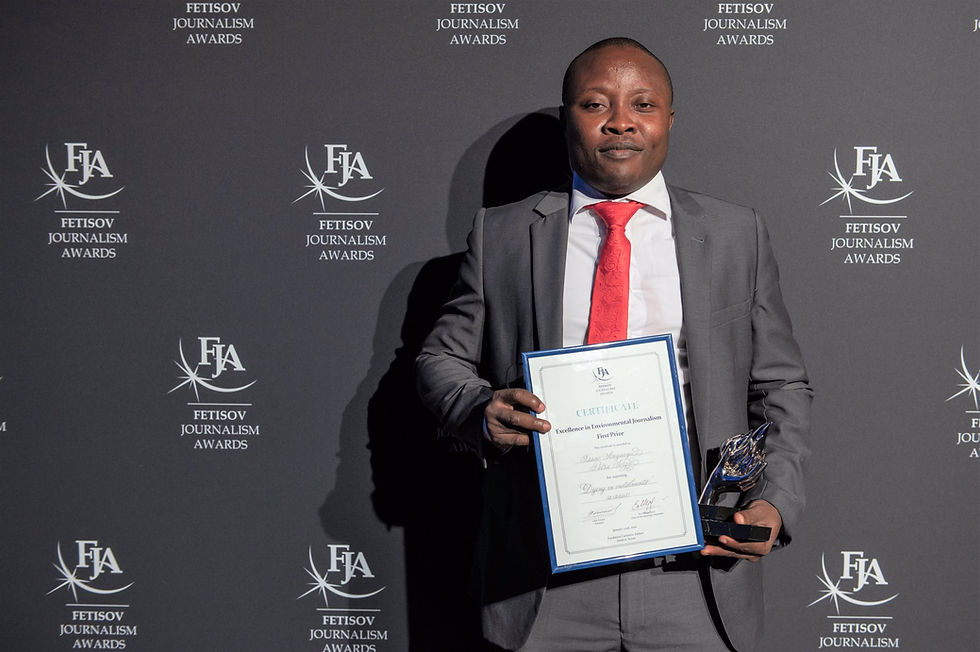Fetisov Journalism Awards inspires excellence in media
- frayintermedia

- Jul 27, 2020
- 2 min read
Journalists from across the world have until August 1 to enter their groundbreaking stories on critical issues to the Fetisov Journalism Awards that offer the biggest monetary prize in the history of international journalism.
“But this award is not just about financial rewards. It is about the promotion of informed, ethical and committed journalism that is both stylish and has public purpose,” said founder of the Ethical Journalism Network and a Fetisov Journalism Awards (FJA) jury member Aidan White, in an FJA press release.
The three winners selected in each FJA category will share a cash prize of CHF 130,000. Professional journalists may enter written work into the following four categories: Outstanding Contribution to Peace, Contribution to Civil Rights, Outstanding Investigative Reporting, Excellence in Environmental Journalism.
Publications’ (stories/articles/reportings) submitted work must have been published in printed or online media websites between June 1, 2019, and May 31, 2020.
The FJA was launched to highlight excellence in critical areas of journalism and seeks to promote values such as honesty, justice, courage and nobility through the work of outstanding journalists.
African journalists recognised in the 2019 FJA included Egyptian journalist Mohamed Abo-elgheit who won first prize in the Outstanding Contribution to Peace category for his “The End User: How Did Western Weapons End Up in the Hands of ISIS and AQAP in Yemen?” report.

Nigerian BusinessDay journalist Isaac Anyaogu won first prize in the Excellence in Environmental Journalism category at the 2019 FJA awards for his collaborative series with German journalist Petra Sorge called “Dying in Installments”. The three-part series focuses on how companies recycling lead-acid batteries are poisoning air, soil and water sources in Ogun and Lagos states in southwestern Nigeria.
“Since the publication, the company said it has spent over $100,000 on projects to clean up the community and provide relief,” said Anyaogu in an interview with frayintermedia.
“They have built a system to contain the waste and manage it more responsibly. To appease the community, they equipped the local medical centre, provided electricity infrastructure for the community and graded their roads.
“Yet, it is not all uhuru but we understand the costs to completely solve the problem is enormous. The good thing is that those dangerous fumes and acidic water no longer flow into the communities endangering the lives of humans and animals,” Anyaogu said.

International Center for Investigative Reporting Nigerian reporter Amos Abba won third prize in the Excellence in Environmental Journalism category for his “How Nestle Nigeria Contaminates Water Supply of Its Host Community in Abuja” investigation.
He said environmental matters should be a “pivotal” part in African journalism, considering climate change issues negatively impacting the continent.
“That should play a central role in trying to make people become aware that if we despise the environment the environment will also despise us,” Abba said.
While Abba said the monetary benefit and the recognition he got from winning the award were helpful, he said journalists should not be focused on writing for awards.
“I think writers should just put their best in a story and tell the story as it is without bias. Take your interest outside, but speak truth to power and hold power to account,” he said.
Find out more about the Fetisov Journalism Awards here.





Comments